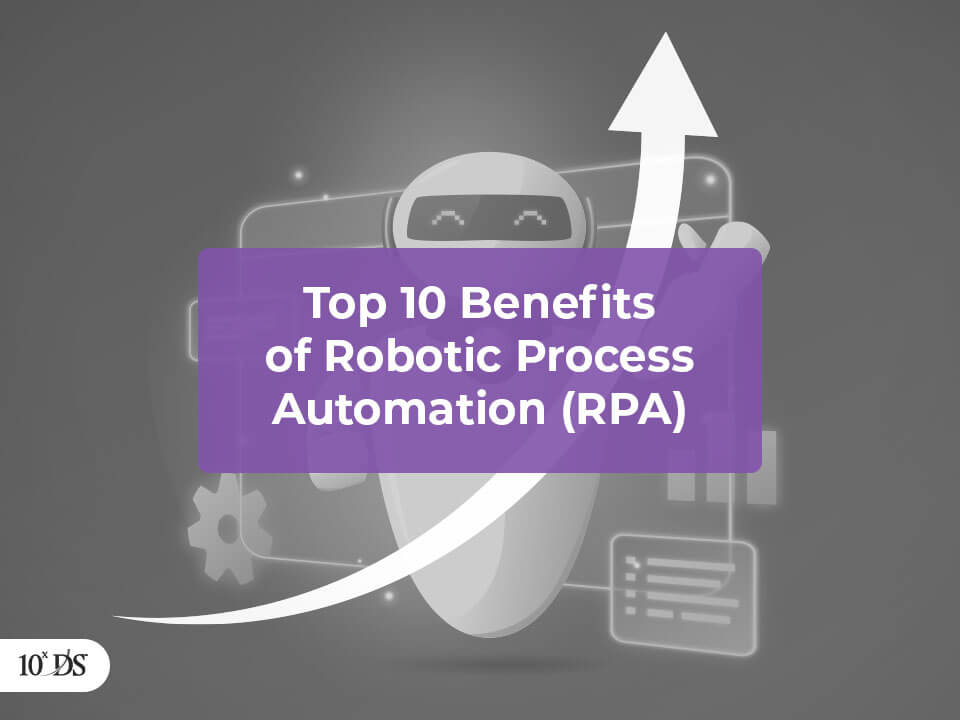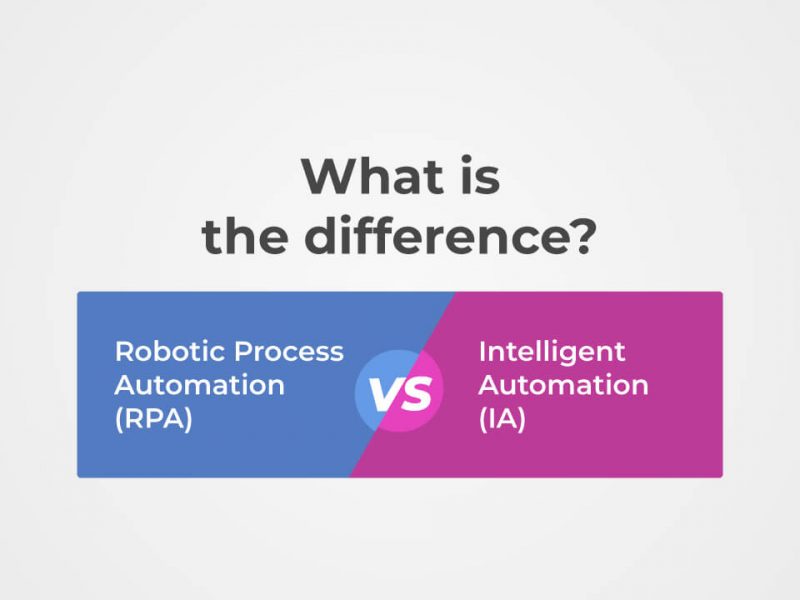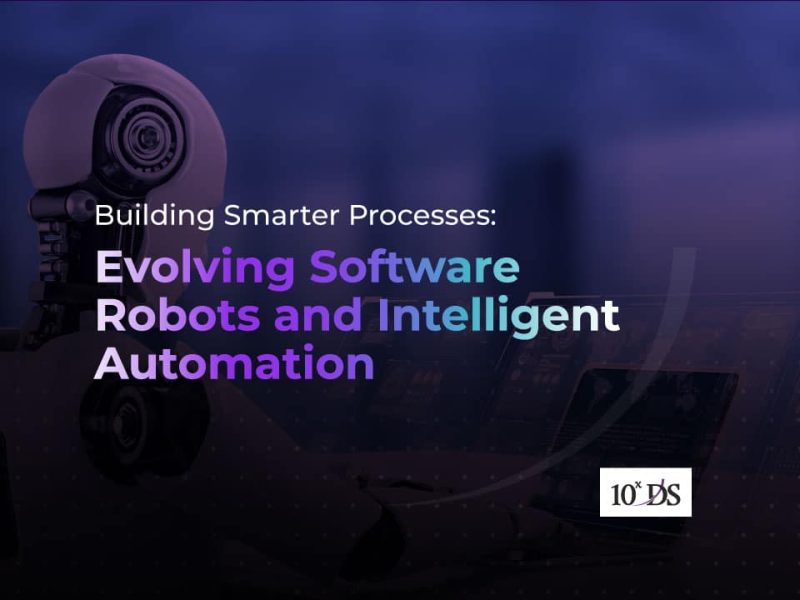
Top 10 Benefits of Robotic Process Automation (RPA)
The economics of Robotic Process Automation (RPA) cannot be ignored any further and its use in various industries, like all strategic moves, is about the intelligent use of resources. It frees the human employee from mundane, repetitive tasks and empowers them to concentrate on core business objectives instead, bringing about numerous benefits to the workplace.
What is Robotic Process Automation?
Robotic process automation helps in the application of specific technologies that can automate mundane, routine, standardized tasks, creating higher productivity and value with lesser investment; so essentially a computer software or ‘software bot’ is allowed to capture and interpret applications for processes that involve manipulating data, executing transactions, triggering responses and communicating with other digital systems within the domain.
This system is rapidly gaining popularity, predominantly in the banking and finance sectors due to the large volume of transactions and the great benefits that can be realized within a short time frame. The magnitude of the benefits of automation is directly proportional to the incremental improvement in the manual processing hotspots. The RPA platform provides your business with the scalability needed to stay, perform and sustain on top of your game. We have deployed RPA solutions in Dubai and around the world and helped enterprises accelerate digital transformation.
Read: What is Robotic Process Automation (RPA) – An Introduction
10 Proven Benefits of RPA for Businesses
Let us take a snapshot of some of the advantages of robotic process automation.
1. Cost-Effective
It has been estimated that using robotics cuts operational costs by as much as 25-50%. Robots can operate 24/7 and take no vacation when compared to humans, who work 8/5 and have a pre-fixed number of annual leaves each year. Having robots take over some of the manually intensive work from humans could result in visible gains for the business. Automation can help you recover the cost within a short time span and from then on, it is all only about gains!
2. Accuracy & Quality
RPA offers improved services to processes that have a high probability of human error, thereby increasing accuracy. Robots are reliable, and consistent and do not whine when expected to work tirelessly. They also reduce the cases of re-works and improve the output quality, drastically. The best part here is that robots follow all rules to the dot, thereby producing 100% accuracy in the process results and let’s not forget what adds more sweetness to this deal – the fast implementation of this technology. RPA optimizes capabilities that multiply the organizational capacity.
3. Consistency
Robotics is a safe, non-invasive technology that doesn’t interfere with the inherent systems and provides perfect consistency in performing the activities across the board, each time and every time.
4. Improved Analytics
Having access to error-free, accurate data from various sources would improve the quality of analytics in the process. This leads to better decision making and overall, to the betterment of the process execution.
5. Increased Employee Productivity
RPA ultimately facilitates humans and robots to do just what they excel at. As RPA frees the employees from their mundane tasks, they can focus more on client and customer interaction, relationship management and other such activities where humans naturally excel at. Having satisfied clients and customers only mean better business.
6. Increased Customer Satisfaction
Delivering better quality of work with high accuracy and improved customer/client interaction leads to increased customer and client satisfaction. This only adds to the goodwill of the business.
7. Faster
As bots are handling the execution here, a larger amount of work can be done in a relatively much shorter period. A faster delivery, coupled with accuracy becomes the norm with automation.
8. Reconciliation from Multiple Systems
RPA makes the tallying of data and information from multiple systems possible which generates information that helps with the integration of processes.
9. Versatility
RPA is applicable across industries and has the ability to perform a wide range of tasks. Any process that is rule-based and can be defined and is repeatable makes an ideal automation candidate.
10. Better IT Support and Management
RPA improves the operational quality of the service desk and monitors the network. This enables companies to handle short term spikes without having to recruit extra staff or train them.
Conclusion
As this advanced technology is revolutionizing process efficiencies and increasing productivity across companies, it is changing the way various businesses and business models are run. Analysts are even suggesting that RPA is creating a second parallel economy that connects to the physical economy in concurrent systems to speed-up and optimizes knowledge work.
Time for you to bring your business onboard and join the biggest change ever!


